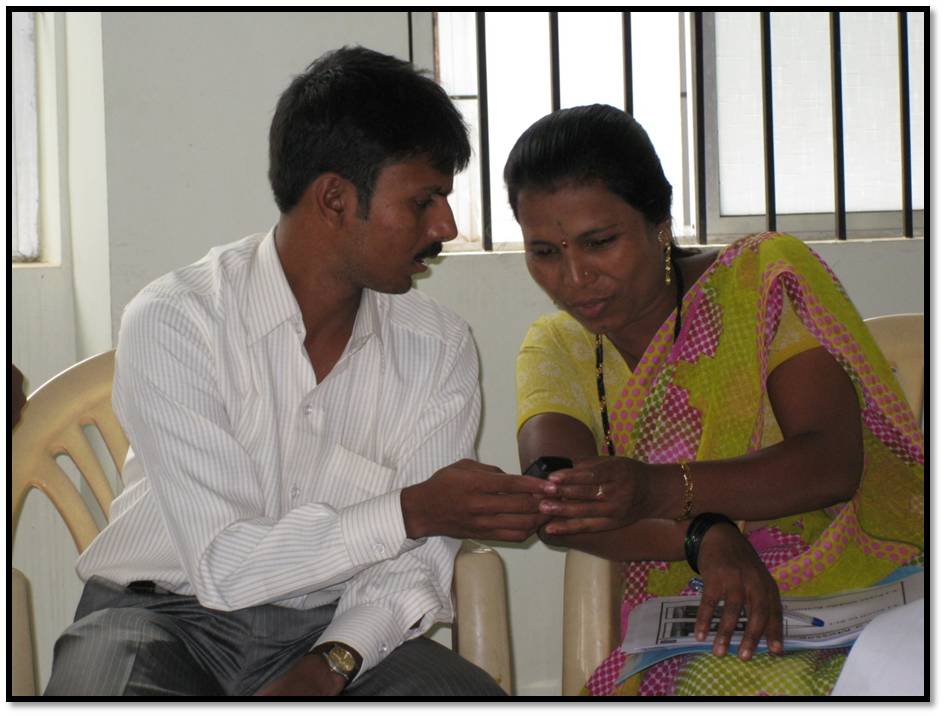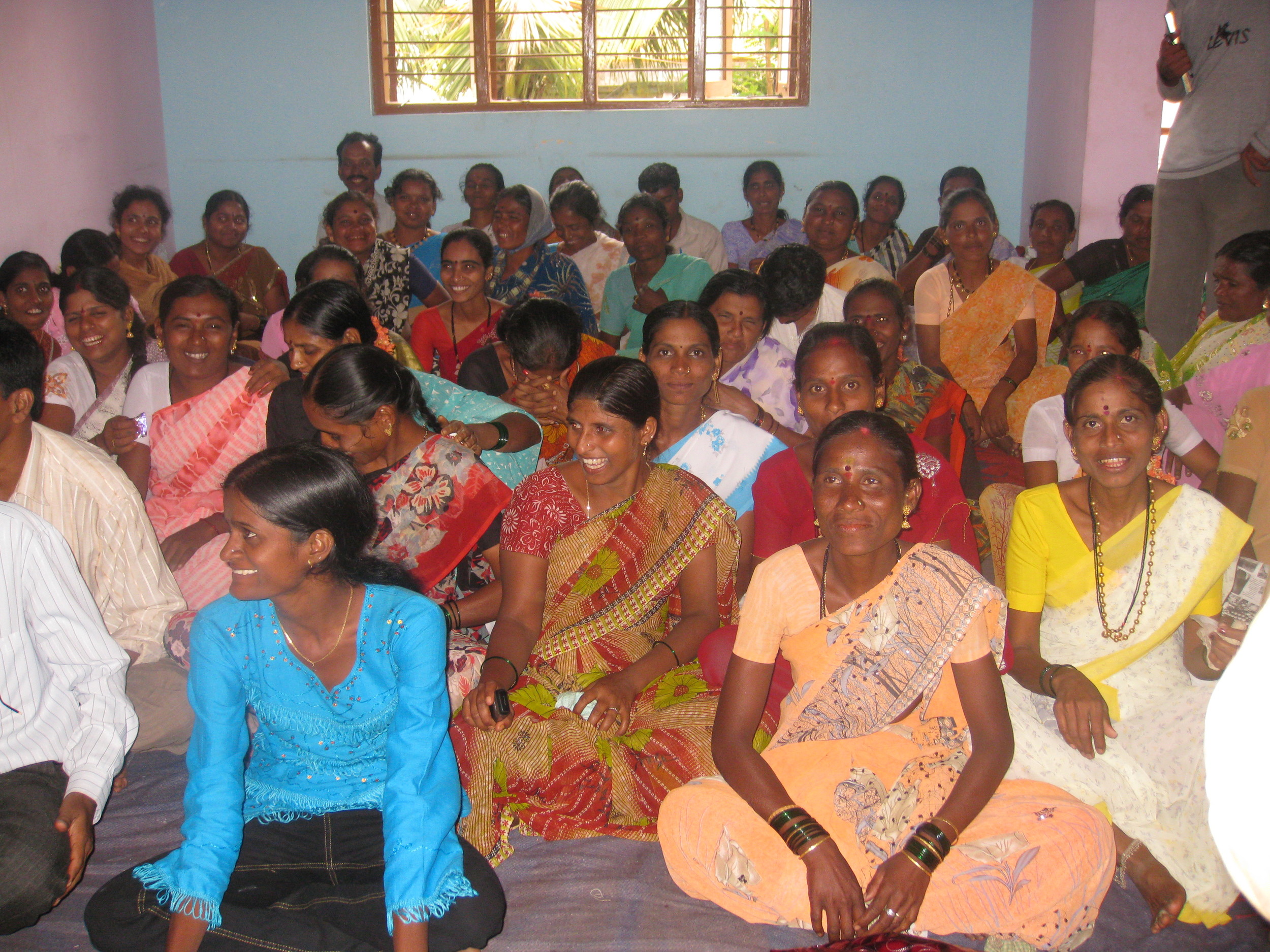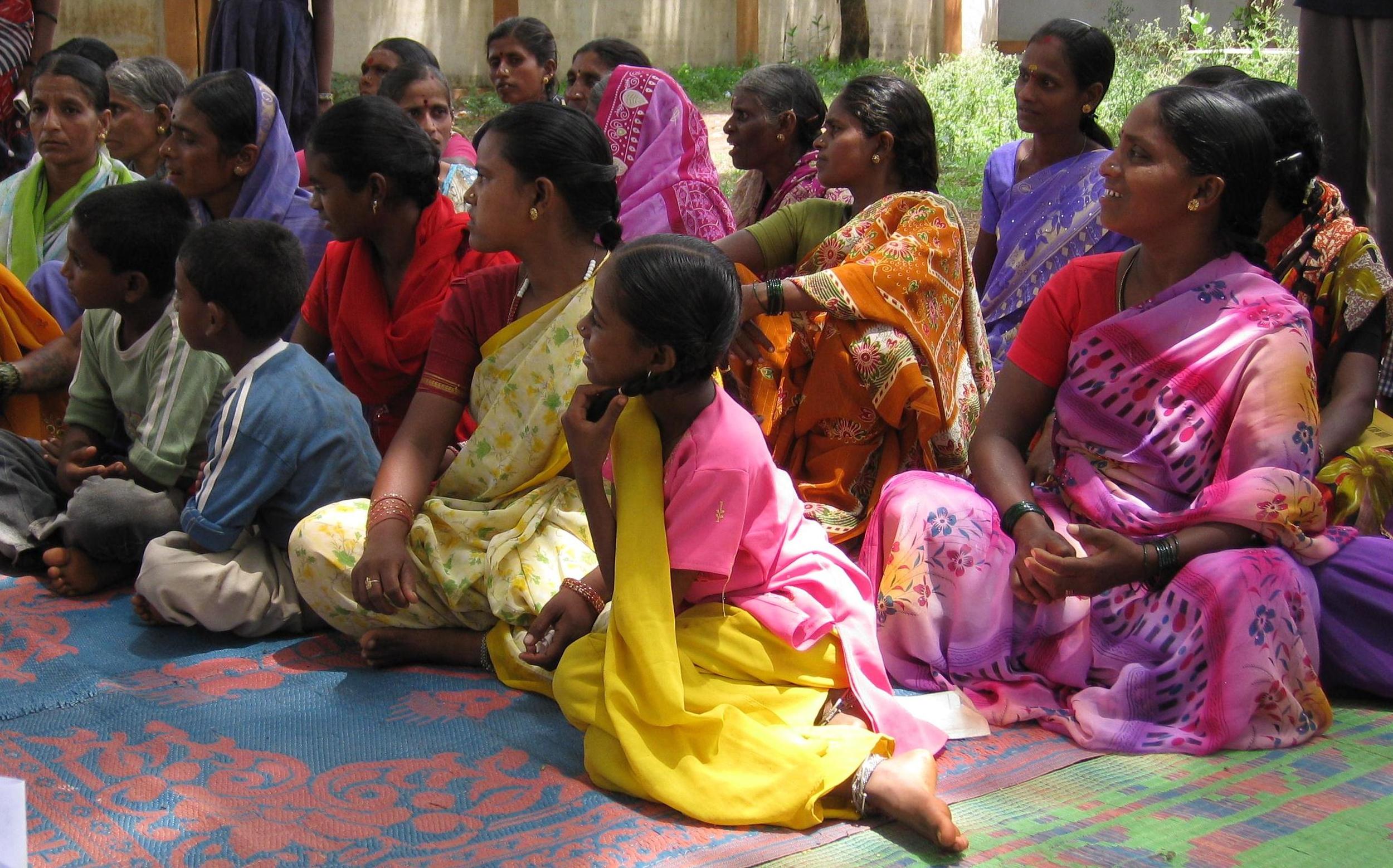Landesa and FrontlineSMS are delighted to welcome and share the announcement today of a US $1.5m Google Global Impact Award, which will enable them to use mobile technology to transform the way that the government in the Indian state of Odisha helps landless families gain secure rights to their land and homes.
At the Forefront of Development: A Look at the Potential of FrontlineSMS in India
FrontlineSMS featured in an Indian newspaper named The Financial Chronicle this week, in an article entitled At the Forefront of Development. You can read the article below, or view the print version of this article here [pdf]. By Brij Kothari, The Financial Chronicle
The hardware is rudimentary. An ordinary mobile phone connected to a laptop with a cable. But who would have thought that this simple set up could actually be turned into a central communication hub, and in the hands of civil society, become a powerful communication tool for people’s empowerment? Ken Banks’ FrontlineSMS, a free and open-source software, is allowing groups at the frontline of development to do some extraordinary things. And yet, all that FrontlineSMS does, is that it “enables users to send and receive text messages with groups of people through mobile phones”. Perhaps, the power of FrontlineSMS can be grasped best by the stories of its use in the hands of others.
A woman in rural India gets an SMS on her mobile Asurakshit din or “Unprotected day”. She is, thus, informed that she is likely to be fertile that day. The information is specifically intended to empower her to make a reproductive choice. Similar reminder SMSs ping through days eight-19 of her reproductive cycle, fertile days as per the Standard Days Method (SDM) of family planning, based on awareness of the menstrual cycle. How does CycleTel, an SMS-based system put in place by Georgetown University’s Institute for Reproductive Health (IRH), keep track of her cycle? The woman herself keeps CycleTel regularly informed of the onset of her cycle, simply by sending an SMS from her mobile to a dedicated number. FrontlineSMS provided the basic architecture upon which a more customised system is being developed through field trials.
HarassMap is a group in Egypt, started by two women who themselves faced harassment quite routinely on their way to and from work, that uses FrontlineSMS to capture the location and gravity of incidents of sexual harassment. The key idea is to get women to report harassment episodes in real time by sending an SMS to a dedicated number. Place and time information is then mapped with another amazing software, Ushahidi, to draw patterns from what would otherwise have been left as isolated data points. Hot spots are then targeted with community activism, awareness campaigns and tools to empower and support women individually and collectively.
In Nigeria, voters who also registered themselves as volunteers for the Network of Mobile Election Monitors (NMEM), took it upon themselves to SMS instantaneously into a FrontlineSMS central hub, any untoward incident of tampering or rigging they might observe. Human Emancipation Lead Project (HELP), a Nigerian NGO helped set up this citizen monitoring system, independent of the official monitoring groups and European Union observers. Observations by two or more volunteers in an area were verified, and if necessary, shared with the official monitoring agencies. Banks termed the Nigerian case a “breakthrough deployment” of FrontlineSMS.
FrontlineSMS was made available online as recently as 2005, and made open source two years later. In 2009, Banks hired his first employee. The spread of FrontlineSMS to more than 80 countries is, thus, nothing if not astonishing. A variety of uses by country popup on a world map at www.frontlinesms.com/frontlinesms-in-action/user-map/. With a strong presence in Africa, the top countries of deployment are Kenya, Uganda, and Tanzania. Banks offered three reasons, the last using a popular acronym of the Information and Communication Technologies for Development (ICT4D) community: “This is likely down to: a) Me having historically focused my blog and attention on Africa; b) FrontlineSMS being closely associated with the continent (the concept came out of field work in South Africa); and finally, c) There being a growing developer and ICT4D community on the continent (through innovation hubs, among others) keen to build on top of tools like ours.”
India, it would seem, is an ideal adoption ground for solutions like FrontlineSMS. Of the 1.2 billion population, only around 100 million have access to the internet, although, this is projected to grow to 300 million over the next three years. The mobile growth story is far ahead. The total subscriber base at the beginning of 2012 was 894 million, with an active subscriber base of 647 million. Wireless teledensity, the number of subscriptions per 100 people, was 161 in urban and 37 in rural areas. Several estimates put the number of smartphones in India at no more than 30 million, and one could safely assume, mostly in urban areas. The majority of active mobile handsets are, therefore, very basic but well-suited for voice and SMS. For civil society organisations working with low-income groups, in rural and urban areas alike, a platform like FrontlineSMS presents exciting communication possibilities.
As compared with African countries, the uptake of FrontlineSMS in India is still nascent. Lack of awareness may be the key issue. What would Banks like to see happen? “We’ve recently had user-organised meet ups in Haiti and Uganda, with others springing up around the world. It would be great to see this happening in India — our ethos and focus is that users should drive deployment of FrontlineSMS, and user-organised meetups are a large part of this.”
If you are using, or interested in using FrontlineSMS in India, then we'd love to hear from you! Please contact us to share your own questions and experiences.
Jaalaka: Connecting the HIV/AIDS Community through Technology
In the twenty-fourth in our series of guest blog posts, we'll hear about how FrontlineSMS is helping Karnataka Health Promotion Trust, and a team of students from the University of Southern California, to build a network of people living with HIV/AIDS in India.

“Jaalaka” means “network” in Sanskrit. In Hubli-Dharwad, FrontlineSMS technology is being used to connect members of the HIV/AIDS population in a widespread rural network to improve service delivery and social support.
Hubli-Dharwad, a peri-urban district in Karnataka, India, has experienced a significant HIV/AIDS endemic. Most of the infections occur amongst the rural female sex-worker population. There is a significant lack of knowledge about STI prevention and treatment amongst these sex workers, which has contributed to the growth in the rate of infections. The Karnataka Health Promotion Trust (KHPT), a government organization that funds and administers public health programs in Hubli-Dharwad, spearheads several programs to combat the spread of HIV/AIDS and other STIs. In order to target the high risk population of female sex workers, KHPT formed a partnership with the Bhoruka Charitable Trust (BCT), a local NGO aimed at promoting health and livelihoods among female sex workers. Since the Hubli-Dharwad region includes over 372 rural villages, BCT employs both professional Outreach Workers as well as volunteer Peer Educators (whom are also female sex workers) to travel to distant villages to educate female sex workers about the risk of HIV/AIDS and to promote safer sex practices.

In summer of 2009, a group of University of Southern California (USC) students, along with financial and logistical support from the Deshpande Foundation, helped launch a pilot program with FrontlineSMS software to improve BCT’s data collection and service delivery. Currently, BCT employs two uses of the Frontline Forms program. Peer Educators make contact with rural female sex workers in the field and complete a Referral Slips via Frontline Forms and the information is immediately sent to the BCT headquarters. The Outreach Workers in the field also completes Daily Reports through Frontline Forms and sends it to the headquarters. By using FrontlineSMS technology as opposed to paper forms, BCT is able to expedite the exchange of information with its staff members in various remote rural areas throughout the district.

As of today, BCT has implemented the program with 37 Peer Educators and 10 Outreach Workers. Both BCT and KHPT have been extremely pleased with the results and are eager to expand the program. Currently, a new team of USC students will be working during the summer of 2010 to troubleshoot technical issues and develop new uses of FrontlineSMS for BCT and other HIV/AIDS advocacy organizations in Hubli-Dharwad.
For more information, check out the USC team's page about the project.



